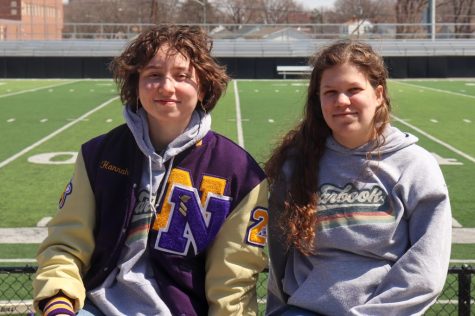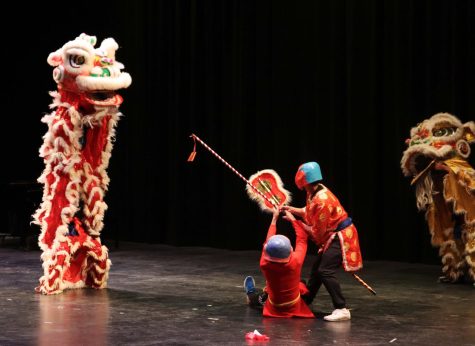Be Green
The Green Team Recycling Program
As human beings, we as people often mindlessly go through the day with little thought of how small decisions could work together to make such an impact on the community and world. In North Kansas City High School, a small group of kids team up each week to collect the staff and student body’s recyclables.
They are referred to as The Green Team. The Green Team was started in the 2005-2006 school year by Cathie Morrison, a formal educator and program director for North Kansas City High School.
“I contacted the Pepsi [company] because that’s the only soda we could have in school, and asked if we could have recycling [bins for] cans,” explained Morrison. Later, the school received four five foot tall recycling bins that resembled Pepsi soda bottles. “We started with that,” said Morrison. The humble beginnings of the recycling program have grown and changed throughout the years, but nothing has changed drastically.
After Morrison left the school, the recycle program was then lead by Eldonna Rose and Lauri Smith. The recycle team is split between Norclay and Main, with Rose advising the students in Norclay and Smith advising students in Main.
“I like the students, it gives me a good feeling that we’re doing something to help save natural resources,” explained Smith. “We have about four to five kids who [regularly] recycle on Wednesdays during Advisory.
The Green Team receives little participation from the vast student population, resulting in the recycling program regularly consisting of about five students or less.
“I couldn’t ask for a better bunch of kids. They’re learning responsibility, respect, teamwork, and time management [through the program],” continued Smith.
In addition to all the qualities that Smith believes the recycle program is helping develop in the students, she also commented that the program is teaching them something on a different level; their personal choices in regards to recycling.
“I think it does make them more conscious and aware of plastic and cans, [especially what] consumers throw away or toss in the trash,” she said. “I’ve become a real recycle person. It’s caused me to think about something before I buy it, [and how much is thrown away].”
Morrison also concluded that understanding the “big picture” of recycling through “small pieces” is important. She explained that people aren’t always attentive to their recycling.
“It’s an icky, sticky, yucky job,” said Morrison. Sometimes, “people stick their milk cartons and food into recycling bins,” she continued. People’s sights can be too narrow because of how focused they are on their daily tasks, which can lead to small steps, such as recycling, being omitted.
This impacts the big picture Morrison referred to. The steps people take every day to contribute to recycling can help across the world. Recycling is not simply for one person or another, it is a global effort.
In recent years, the recycle program that Northtown traditionally used has changed. Smith explained that, “[our school] no longer [receives] money for recycling. They suspended the rebate program,” and North Kansas City now uses a company called Paper Retriever as the recycling service.
Although the recycle service does not currently offer a rebate component, Smith still makes sure that recycling from our school still gives back to the community in more ways than one.
“I take the plastic over behind the community center,” said Smith, while the aluminum cans are donated to her church.
“The money from the soda cans helps support Heifer International,” explained Smith. She takes the recycled cans to her church, and the money received from the community’s cans is donated to Heifer International.
As a non-profit organization, Heifer International strives to make change in world hunger. Smith explained how Northtown’s recycling contributes to helping many people and families around the world find meals.
The Heifer International is active in more than thirty countries, from Haiti to Zimbabwe, to Romania and Nepal.
To help further support the fight against world hunger, Smith explained where Northtown students could really help make a change and impact people around the world.
“It would be great if the recycling team could capture the pop cans from the Hot Dog church,” she said. She estimated that the majority of the cans are simply tossed in the trash, when they could be recycled to help organizations such as Heifer International.
Northtown’s Green Team is taking steps each week to contribute to an eco-friendly community through recycling our school’s reusable materials. Small decisions, such as recycling a soda can from lunch, can help make impacts for those not only in our community but for all people around the world.







Brennan • Feb 20, 2015 at 3:53 pm
Milk cartons are recyclable in a majority of the country, worth checking out.